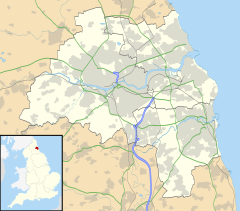Are you ready to unlock the mesmerizing power of your hips through belly dance?
Imagine yourself swaying gracefully, like a shimmering goddess, as the music fills the air. Welcome to the captivating world of belly dancing classes! In these enchanting sessions, you will embark on a journey that celebrates femininity, self-expression, and body confidence. The rhythmic movements of belly dance not only tone your core muscles but also unleash your inner sensuality.
During belly dance lessons, you will learn an array of techniques including shimmies, undulations, and isolations that will enhance your coordination and flexibility. Expert instructors will guide you through each step with patience and precision. As you delve deeper into this ancient art form, you’ll discover various styles of belly dance such as Egyptian, Turkish, and Tribal Fusion. Whether you’re drawn to traditional elegance or modern fusion moves, there’s a style that perfectly suits your unique personality.
So put on something comfortable yet alluring – perhaps a flowy skirt or hip scarf – and get ready to immerse yourself in the magic of belly dancing classes. Let loose, embrace your femininity, and ignite a fire within that will keep burning long after the music stops. Join us for an unforgettable experience!
About Wallsend
| Wallsend | |
|---|---|

Wallsend Town Hall
|
|

Wallsend
Location within Tyne and Wear
|
|
| Population | 43,826 |
| OS grid reference | NZ301664 |
| Metropolitan borough |
|
| Metropolitan county |
|
| Region |
|
| Country | England |
| Sovereign state | United Kingdom |
| Post town | WALLSEND |
| Postcode district | NE28 |
| Dialling code | 0191 |
| Police | Northumbria |
| Fire | Tyne and Wear |
| Ambulance | North East |
| UK Parliament |
|
54°59′28″N 1°32′02″W / 54.991°N 1.534°W / 54.991; -1.534 |
|
Wallsend is a town in North Tyneside, Tyne and Wear, England, at the eastern grow less of Hadrian’s Wall. It has a population of 43,842 and lies 4 miles (6.5 kilometres) east of Newcastle on Tyne.
History
Roman Wallsend
In Roman times, this was the site of the fort of Segedunum. This fort protected the eastern decline of Hadrian’s Wall, which did not halt at the western wall of the fort, but continued from its south-eastern corner alongside to the shore of the River Tyne. As David Breeze writes, “In the prematurely nineteenth century, as recorded by Bruce, John Buddle the Younger had often seen the Wall foundations extending far into the river once swimming there as a boy.”
Pre-Conquest
The cancellation of the Romans from the Wall tersely brought the Picts from the north and suddenly afterwards the Angles, sailing from near the mouth of the River Elbe in the same way as frequent raids both from sea and from land. Ida the Saxon laid waste to the amass of the north in 547 and Wallsend doubtless suffered in the general devastation. It was not until the golden age of Northumberland below Edwin of Northumbria, and the subsequent introduction of the Christian faith by King Oswald of Northumbria (635-642) and St Aidan, that Wallsend enjoyed a epoch of friendship and progress. This period of peace came to an abrupt fade away in 794 past the Danes (or Vikings) swarmed stirring the Tyne in good numbers. In the years back the Norman conquest there was a strive for mastery between Danes and Angles
Source
